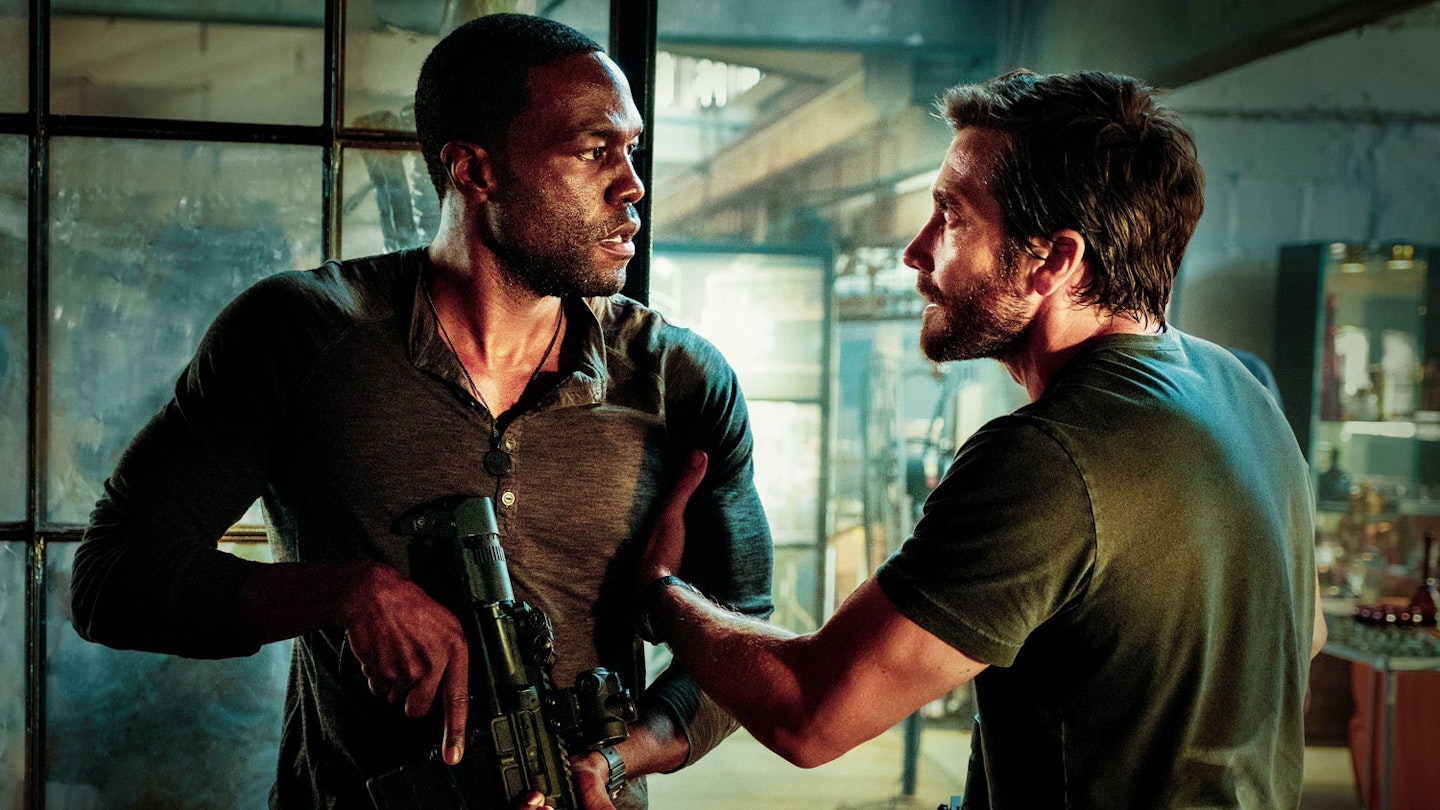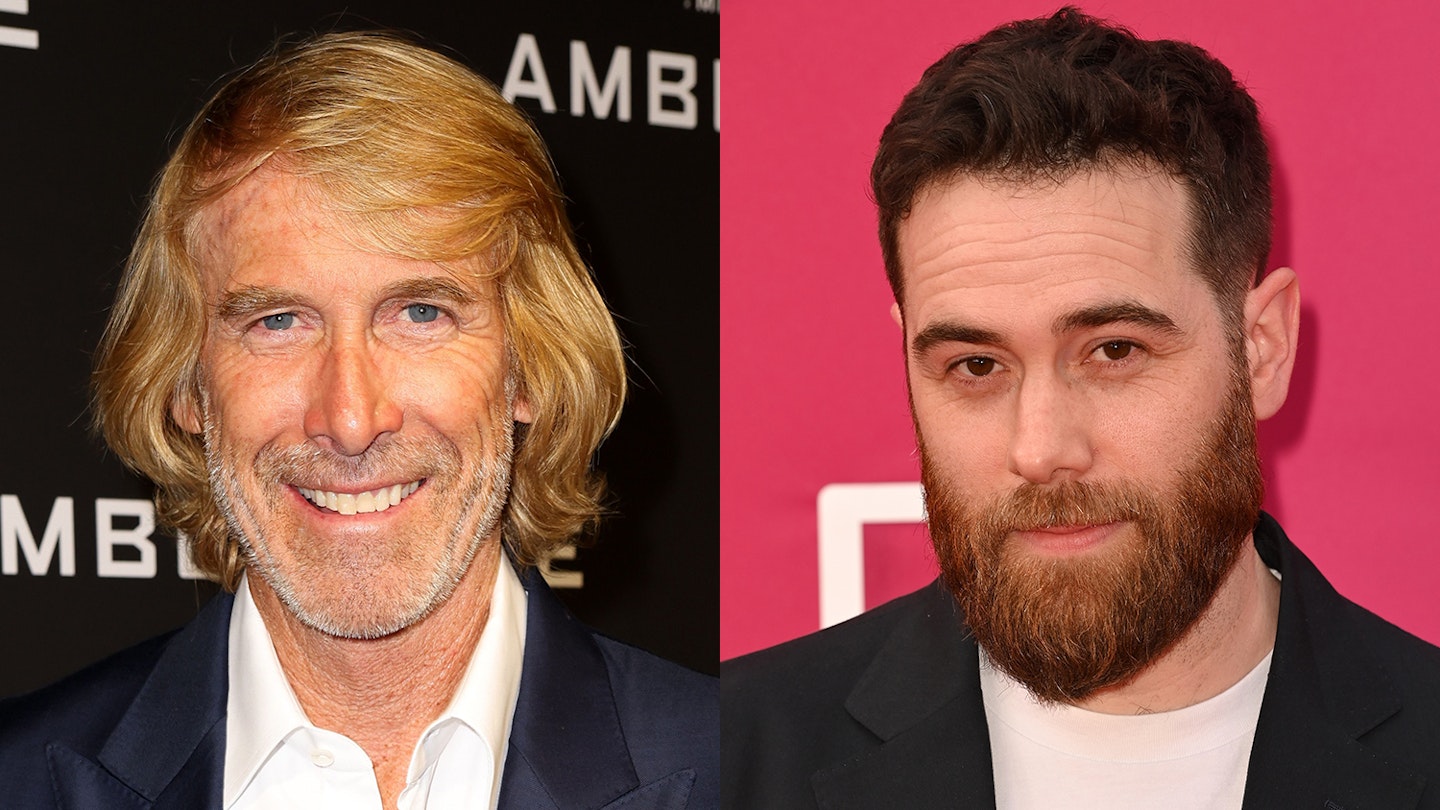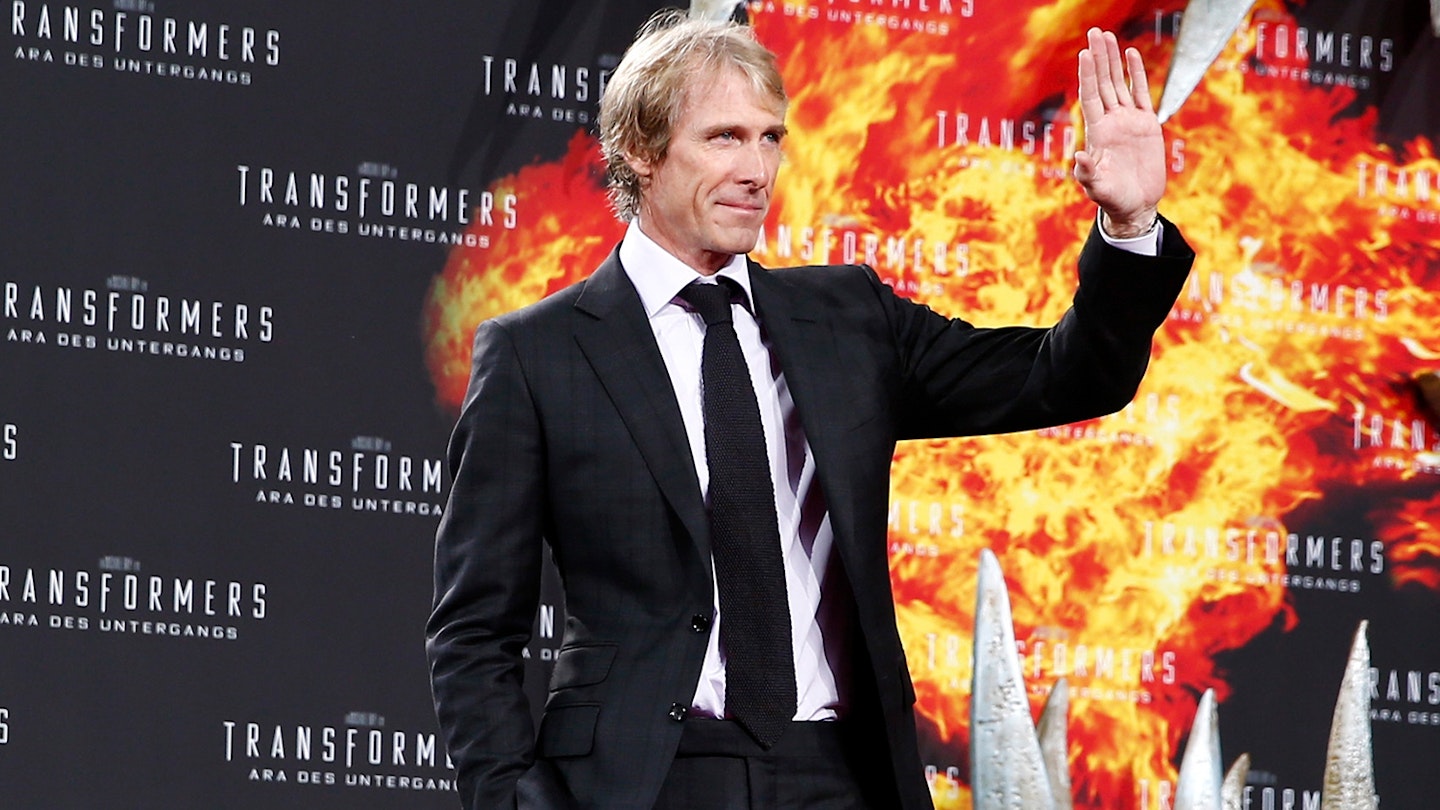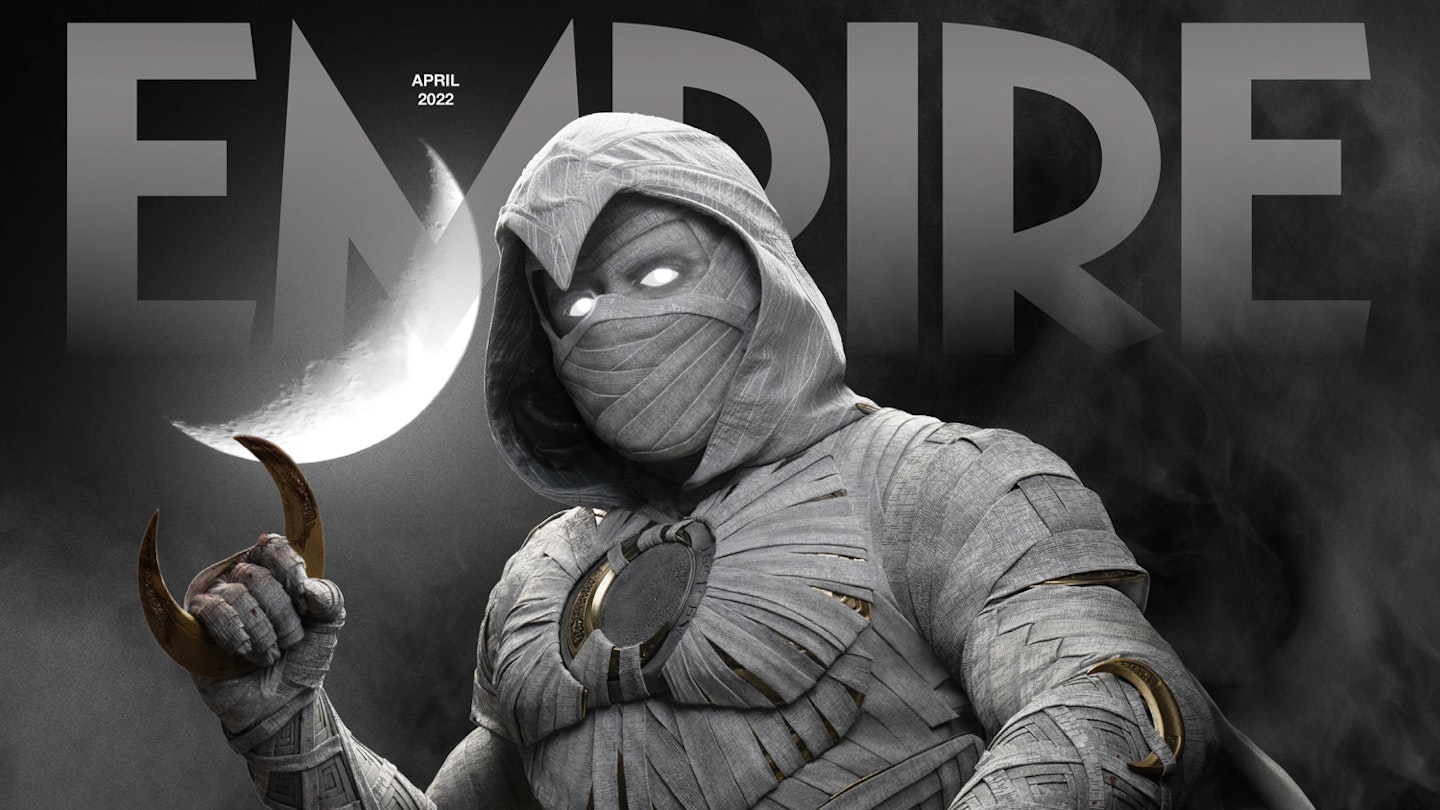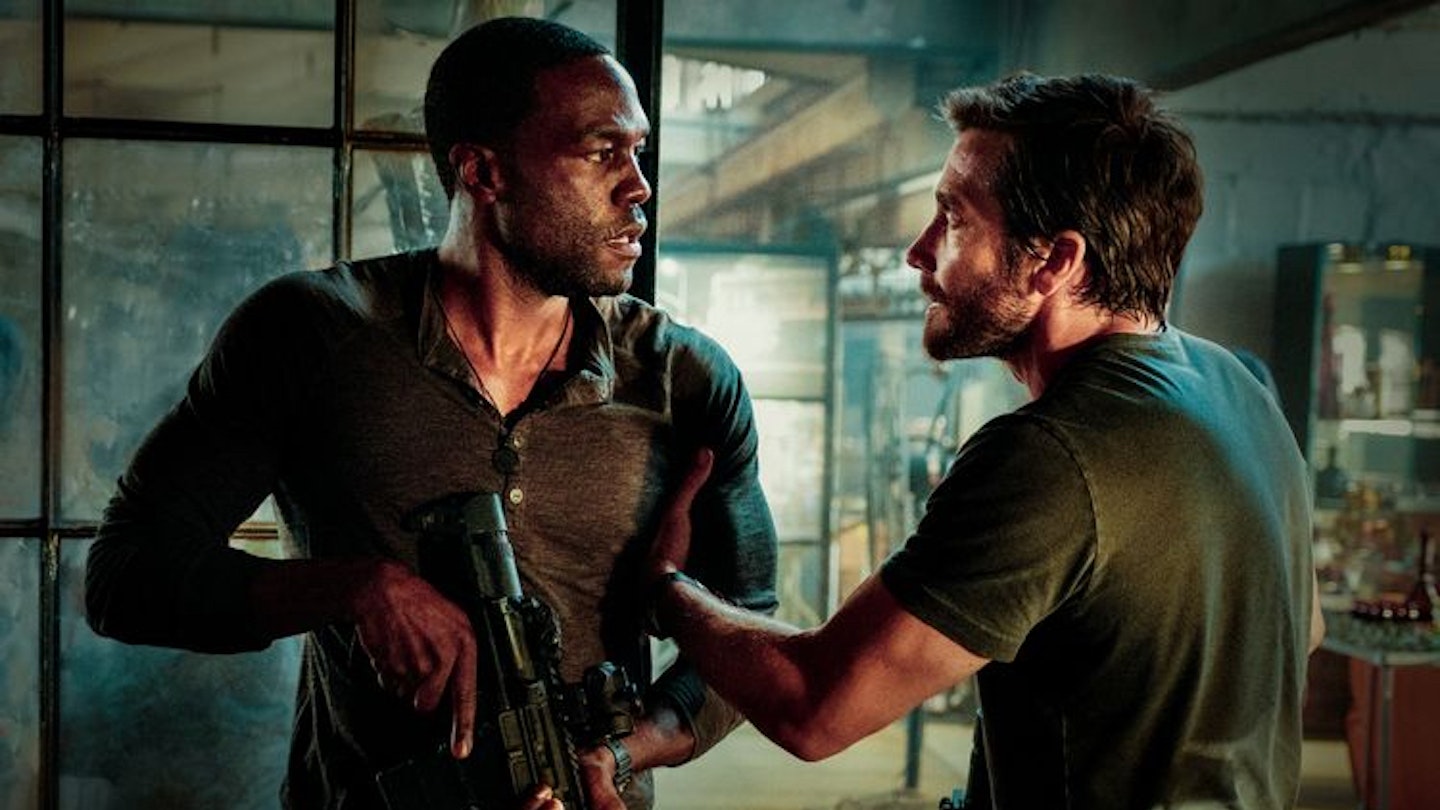Michael Bay ‘going small’ is everyone else’s ‘going absolutely bloody massive’. Ambulance, the action specialist’s 15th feature film, was trumpeted as a return to the director’s roots, shot rapidly in the summer of 2020 on a fraction of the budget he usually plays with. His roots, of course, were hardly subtle affairs, and neither is Ambulance — but it’s the closest to his career-high, The Rock, that he’s been in years.
After the self-indulgent misfire of his last film, 6 Underground, this is a cracking example of how Bayhem can work (to an extent) within some tight parameters. The straightforward premise, taken from the Danish film of the same name, is sound: two brothers, one of good heart (Yahya Abdul-Mateen II, on steadfast form), one near-psychopathic (Jake Gyllenhaal, on deranged form), one paramedic hostage (Eiza González, the grown-up in the room), and one ambulance, versus the entire LAPD. On paper it’s about a bank heist, but the film rattles through that part fairly quickly, because this is to its core a chase movie; like Speed before it, it takes the concrete highways of Los Angeles as its grand stage.
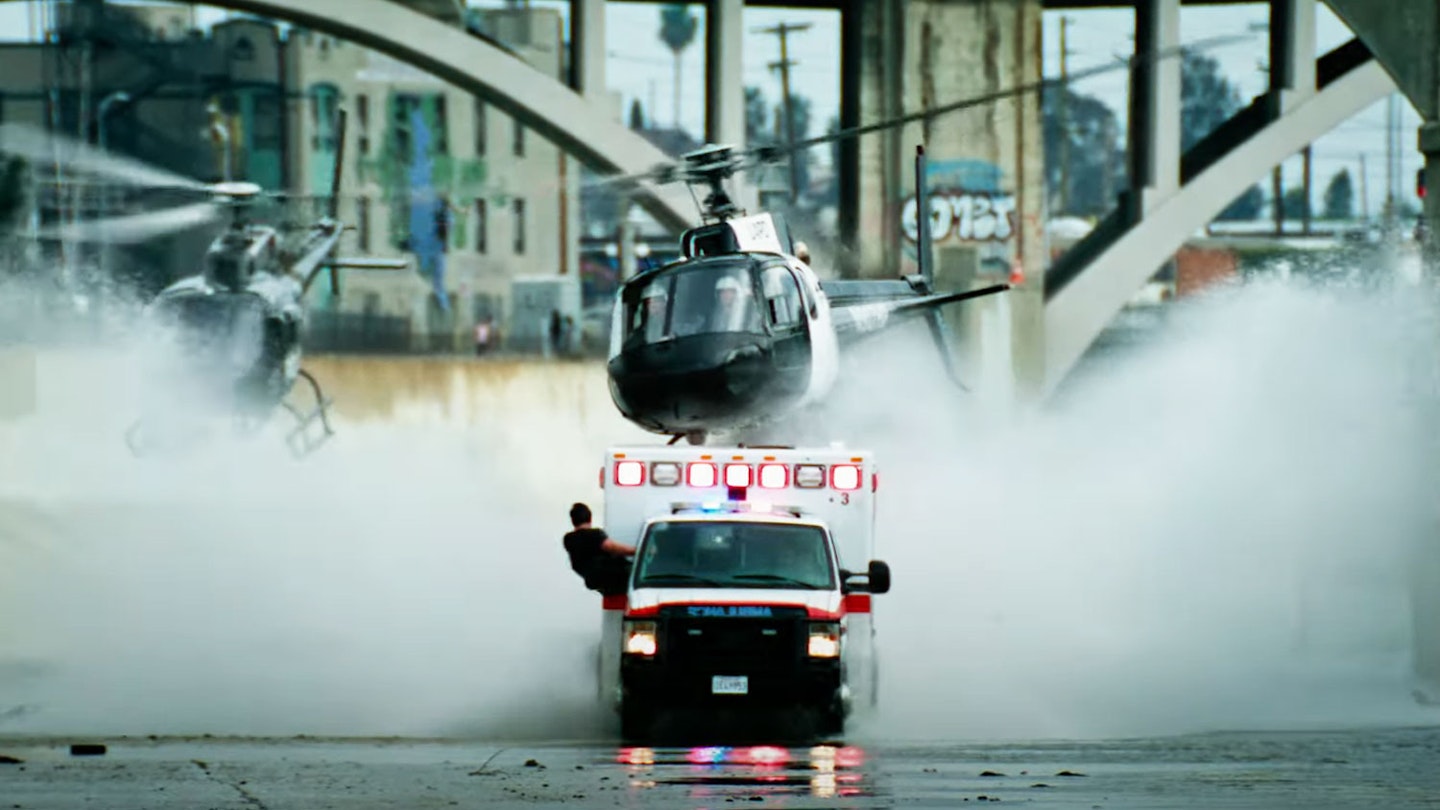
Almost reassuringly, Bay’s hallmarks are still here. Golden hour is still 24 hours long. Clichéd dialogue still abounds (“Nobody knows this city better than you!”). Bay has still never met a lens he doesn’t want to flare. Anything that can explode probably still will. But he’s added some new feathers to his cap: in an audaciously meta move, Michael Bay characters are now able to reference and even quote previous Michael Bay films; his camera is nowhere near as sleazy as it once was; and spiralling drone shots give his frame dizzying new perspectives.
At times you will wonder how the hell a camera even fitted between the congruence of speeding metal and conflagrations.
Those acrobatic angles, in fact, add an entirely new dimension to Bay’s action, and the action is really the only reason we’re all here. At times you will wonder how the hell a camera even fitted between the congruence of speeding metal and conflagrations. The pace, meanwhile, is relentless and white-knuckle. “We’re locomotives,” screams Gyllenhaal’s character at one point, “we don’t stop” — which really sounds like Bay describing his own work ethic. Lord knows how a man approaching 60 can keep these energy levels up.
It’s by no means always coherent: that relentless pursuit of pace often results in hard-to-follow editing, and the director seems to share the same philosophy towards sound-mixing as Christopher Nolan, with sonic fury sometimes prioritised over audibility. Much of the film pays serious respect to police militarisation, too, which seems out of step with the mood of America. And a lot of it is just tremendously silly: a farting dog is a key plot point, while someone yells at a crucial moment about their cashmere jumper.
It doesn’t all work. But when the sirens are blaring at their best, it is a reminder of why nobody does bold, brash, bonkers blockbusting quite as thrillingly — or loudly — as Bay.
